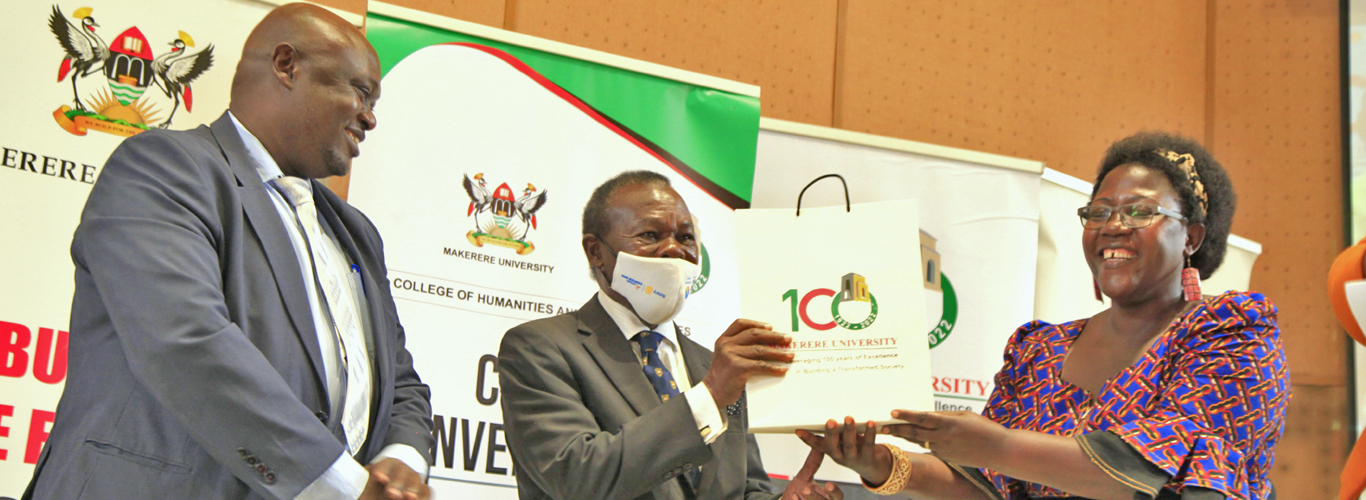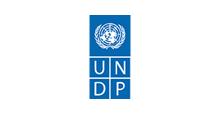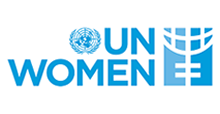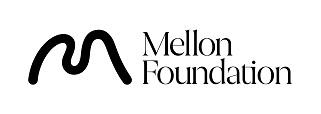
The College of Humanities and Social Sciences (CHUSS) on 19th May 2022 held its 2nd conversation to commemorate the centennial celebrations under its overarching project, Historicising the Humanities at Makerere University since 1922, funded by Andrew W Mellon.
The College brought together the former faculty members who served in various capacities as classroom teachers, heads of departments, deans, wardens, counsellors, to hear from them their experiences at Makerere university and their scholarly service beyond the gates of Makerere university in similar or other capacities.
Held under the theme, “Humanities and Social Sciences: 100 years back, 100 years forward”, the aim of the 2nd CHUSS conversations aimed to re-examine the basis of the disciplines in the humanities and humanistic social sciences at Makerere University and, to establish how the disciplines have evolved overtime and what their existence has meant for Uganda. The other purpose was to evaluate the contribution of humanities and humanistic social sciences at Makerere University to interdisciplinary research and to public, local and global knowledge production.
The project coordinator Dr. Levis Mugumya underscored the luminaries’ service at Makerere university, particularly at the former Faculty of Arts and Social Sciences that paved way for greater things for students, their colleagues, the university and the country.
“You are our giants on whose shoulders we have stood to advance the core values of a university and interests of Makerere university. Indeed, we are proud of you and we are grateful to you for laying the foundations of humanities and social sciences scholarship at Makerere University”.
Dr. Mugumya acknowledged how vibrant the humanities and humanistic social sciences were in the 1960s and 1970s:
“We know the former Faculty of Arts and Social Sciences was a zone that attracted eminent scholars in these fields and groomed post-independent political leaders such as Julius Nyerere, Milton Obote, Mwai Kibaki, Benjamin Mkapa, Oginga Odinga, and others. The intellectual debates of Okot p’Bitek, Ali Mazrui, David Rubadiri, Nuruddin Farah, Ngugi wa Thiong’o, John Ruganda, V. S. Naipul, Wole Soyinka and Mahmood Mamdani were cherished and informed knowledge production on the African continent”.
We are also aware of the complex and difficult challenges that you endured (even we still experience such difficulties), but you waved the stormy waters to stay the course of humanities and social sciences disciplines”. Dr. Mugumya said.
Dr. Mugumya highlighted a number of challenges including: the pressure from the University and government to reform in order to conform to contemporary national development programs; grappling with restrictive and inadequate funding of research and training.
Other bottlenecks are the stereotypic outlook of governments of the humanities as non-significant disciplines in national development; the legitimacy of humanities at Makerere University and the value of their contribution to society and development resulting in reduced government funding for research and students admitted into the disciplines of humanities and social sciences.
Dr. Mugumya was also cognisant of the significant attempts to reform the humanities enterprise at Makerere University to conform to market demands and render the humanities relevant to society as well as to forestall the demise of the faculty and ‘disciplines.
“Therefore, today’s conversation has been organised to reflect largely on the scholarship of the humanities and social sciences one hundred years ago (of course, we do not have the personalities who saw the beginnings of Makerere College in 1922; however, we have luminaries who witnessed the nascent growth of the disciplines in the early 1960s and 1970s. We would also like the conversations to look into the future of our disciplines, thus the theme Humanities and Social Sciences: 100 years back, 100 years forward”. The don said.
The days ‘program had a mix of panellists from Gender and Women studies, Linguistics and Languages studies, Political Science, religion (African traditional religion), Performing Arts, History, Literary Studies, Journalism and Communication, and Social Psychology.
The panellists narrated their experiences at Makerere and how the university shaped their academic paths and possibly their relationship with Makerere after they retired or transferred their services elsewhere. Mugumya said this was not an event to reminisce the yester years of Makerere (the illustrious and perhaps gloomy days), but most important, to learn from these experiences as we live in different times (of Email and WhatsApp as opposed to handwritten letters and chits) with different academic aspirations and challenges.









